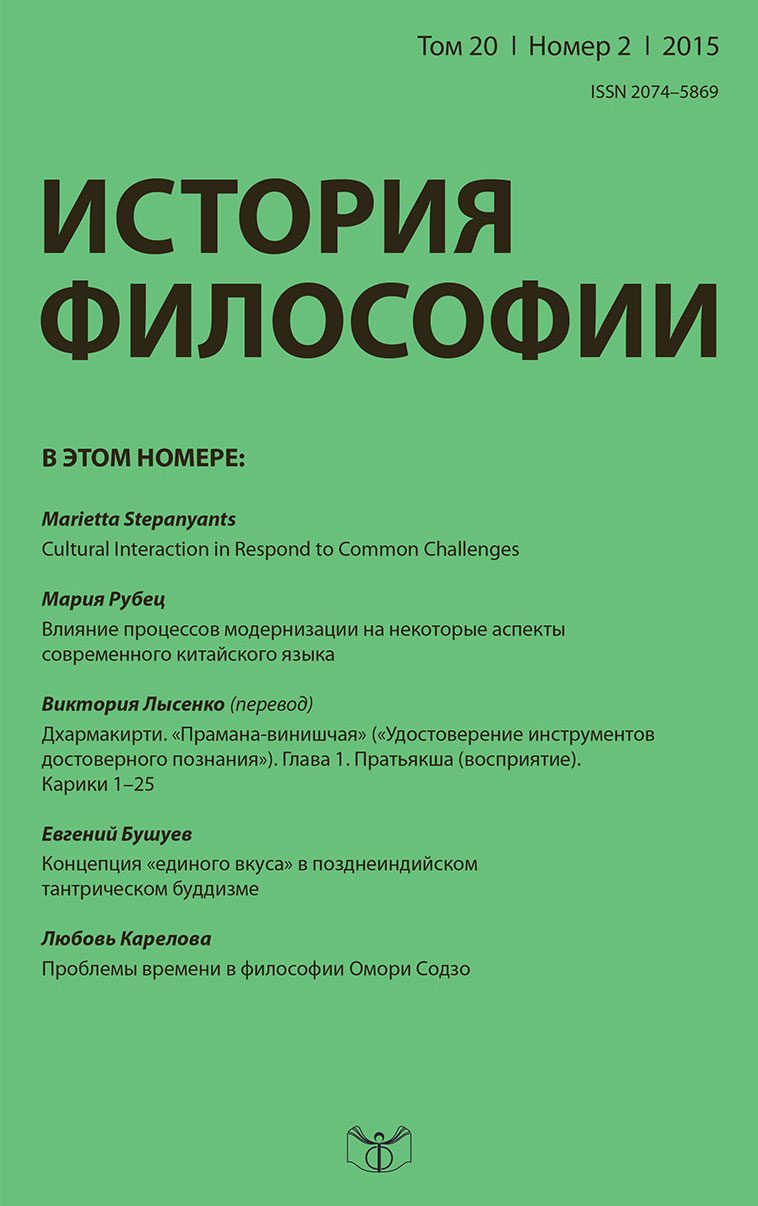The Problems of Time in Philosophy of Ōmori Shōzō
Keywords:
linear time, spontaneously occurring time, now, past, present, future, reminiscences, past in itselfAbstract
Ōmori Shōzō (1921–1997) is one of Japan’s leading philosophers of the twentieth century, who
started out as a phenomenologist, then moved toward to the problematization and methods of analytic philosophy.
The study of his works “Time and ‘Self’” (1992), “Time and Being” (1994) and “Time Does not
Flow” (1996) made it possible to trace the ways of solving the problems of time within the analytic
trend in modern Japanese philosophy.
The paper focuses on the following main topics investigated by Ōmori Shōzō: the relation of “spontaneously occurring time” given in immediate experience, and the concept of “linear time” used
in physics and everyday life; the understanding of the past, present, future, and the forms of their
existence; the problem of the past as a collective verbal creation; the possible existence of “past in
itself”; the problem of the reality of time.

